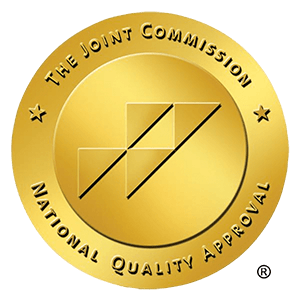In a world where societal pressures and unrealistic beauty standards often dictate our relationship with food and body image, healing from an eating disorder can feel like an uphill battle. However, embracing a holistic approach—one that nurtures both the body and mind—can pave the way towards recovery and genuine self-care. In this journey to reclaiming wellness, it’s crucial to recognize that healing goes beyond mere physical nourishment; it encompasses mental, emotional, and spiritual well-being as well. This holistic perspective acknowledges the interconnectedness of our thoughts, feelings, and behaviors, emphasizing the importance of addressing underlying emotional wounds and cultivating self-compassion. Through a blend of mindful eating practices, therapeutic techniques, and self-care rituals, individuals can embark on a path of healing that honors their inherent worth and fosters a deeper connection with themselves. Join us as we explore the transformative power of a holistic approach to healing from an eating disorder, and discover the profound impact it can have on both body and soul.
Healing the Mind: Therapeutic Approaches for Eating Disorder Recovery
Recovery from an eating disorder involves more than just addressing physical symptoms; it also requires healing the mind and addressing the underlying psychological factors contributing to the disorder. Therapeutic approaches play a crucial role in this process, offering individuals the tools and support they need to navigate the complexities of their relationship with food, body image, and self-esteem. In this article, we’ll explore some of the most effective therapeutic modalities for eating disorder recovery and how they can help individuals find healing and freedom from their struggles.
Cognitive-Behavioral Therapy (CBT)
CBT is one of the most widely researched and evidence-based treatments for eating disorders. This therapeutic approach focuses on identifying and challenging distorted thoughts and beliefs related to food, weight, and body image. By helping individuals recognize and reframe negative thought patterns, CBT empowers them to develop healthier attitudes and behaviors around eating and body image. Additionally, CBT often incorporates behavioral strategies such as exposure therapy, which helps individuals confront and overcome fears related to food and body exposure gradually.
Dialectical Behavior Therapy (DBT)
DBT is another therapeutic approach that has shown promise in the treatment of eating disorders, particularly for individuals with co-occurring issues such as emotional dysregulation or self-harm behaviors. DBT combines cognitive-behavioral techniques with mindfulness practices, interpersonal skills training, and emotion regulation strategies to help individuals build resilience and cope with distressing emotions in healthier ways. By learning to tolerate distress, regulate their emotions, and improve interpersonal effectiveness, individuals can reduce the reliance on maladaptive coping mechanisms such as disordered eating behaviors.
Acceptance and Commitment Therapy (ACT)
ACT is a mindfulness-based therapy that focuses on increasing psychological flexibility and fostering acceptance of internal experiences, such as thoughts, emotions, and sensations. In the context of eating disorder recovery, ACT helps individuals develop a more compassionate and non-judgmental relationship with their thoughts and feelings around food and body image. By clarifying their values and committing to meaningful action, individuals can move toward a life that is consistent with their values and aspirations, rather than being driven by the dictates of their eating disorder.
Family-Based Treatment (FBT)
FBT, also known as the Maudsley Approach, is a highly effective therapeutic approach for adolescents with eating disorders, particularly anorexia nervosa. FBT involves the active involvement of family members in the treatment process, with the goal of restoring weight and normalizing eating behaviors. Family members are enlisted as allies in supporting the adolescent’s recovery, and the focus is on reestablishing healthy family dynamics and communication patterns. FBT empowers families to become agents of change and provides a supportive environment for the adolescent to overcome their eating disorder.
Interpersonal Psychotherapy (IPT)
IPT is a short-term, evidence-based therapy that focuses on improving interpersonal relationships and addressing interpersonal issues that may contribute to the development or maintenance of an eating disorder. IPT helps individuals identify and address problematic patterns in their relationships, such as difficulties with communication, assertiveness, or boundary-setting. By enhancing interpersonal skills and addressing interpersonal conflicts, individuals can develop healthier relationships and reduce reliance on disordered eating behaviors as a means of coping with relational stressors.
Finding Balance: Exercise and Movement in Eating Disorder Recovery
Exercise and movement can be sources of joy, strength, and vitality in our lives. However, for individuals recovering from an eating disorder, navigating the realm of physical activity can be complex and challenging. Finding balance is key – balancing the desire to stay active with the need to prioritize physical and mental health. In this article, we’ll explore how to approach exercise and movement mindfully in eating disorder recovery, honoring the body’s needs and fostering a positive relationship with physical activity.
Listening to Your Body
One of the fundamental principles of finding balance in exercise during eating disorder recovery is learning to listen to your body. This means tuning in to physical sensations, energy levels, and emotional cues before, during, and after physical activity. It’s about honoring your body’s signals and respecting its limitations without judgment or criticism.
Reframing Exercise Goals
Instead of focusing solely on aesthetic goals or calorie burning, consider reframing your approach to exercise. Shift your mindset towards movement that feels enjoyable, empowering, and nourishing. Set intentions based on how activities make you feel rather than arbitrary metrics of success. Whether it’s dancing, hiking, yoga, or simply going for a walk, choose activities that bring you joy and fulfillment.
Establishing Boundaries
Setting boundaries around exercise is crucial in eating disorder recovery. This may involve creating a structured exercise routine with the guidance of a therapist or healthcare professional, setting limits on duration or intensity, or taking regular rest days to allow your body to recover and replenish. Boundaries provide a sense of safety and stability, preventing the risk of overexertion or relapse.
Exploring Gentle Movement
In the early stages of recovery, gentle movement practices such as restorative yoga, tai chi, or gentle stretching can be beneficial. These forms of movement promote relaxation, flexibility, and body awareness without placing undue stress on the body. They offer an opportunity to reconnect with your body in a nurturing and compassionate way, laying the foundation for a more balanced relationship with exercise.
Seeking Support
Recovery is not a journey to embark on alone. Seek support from a multidisciplinary team of professionals, including therapists, dietitians, and fitness instructors who understand the complexities of eating disorders. They can help you navigate the challenges of exercise in recovery, provide accountability, and offer guidance tailored to your individual needs and goals.
The Power of Community: Building Support Networks in Eating Disorder Recovery
Navigating the journey of eating disorder recovery can feel overwhelming and isolating. However, finding support within a community of understanding individuals can be a powerful source of strength and healing. In this article, we’ll explore the importance of building support networks in eating disorder recovery and offer insights into how to cultivate connections that foster understanding, empathy, and resilience.
- Shared Understanding: Connect with others who have experienced or are currently navigating eating disorder recovery. Sharing experiences and insights can create a sense of validation and understanding, reducing feelings of isolation and shame.
- Peer Support: Seek out peer support groups or online communities where individuals facing similar challenges can come together to offer encouragement, empathy, and practical advice. These spaces provide a safe environment to share struggles and successes without fear of judgment.
- Professional Guidance: Engage with a multidisciplinary team of professionals, including therapists, dietitians, and support group facilitators, who specialize in eating disorder recovery. Their expertise and guidance can provide invaluable support and direction throughout the recovery process.
- Accountability: Establish accountability partners or buddies who can offer encouragement, motivation, and gentle reminders to stay on track with recovery goals. Having someone to lean on during difficult moments can help prevent feelings of overwhelm and relapse.
Building a support network in eating disorder recovery is essential for fostering resilience, empowerment, and healing.
Conclusion
Core Recovery in Phoenix, Arizona, we are committed to offering a holistic approach to healing from eating disorders, prioritizing the nourishment of both the body and mind. Through our comprehensive programs and compassionate support, we strive to empower individuals on their journey towards recovery. With a focus on addressing the underlying factors contributing to disordered eating behaviors, we aim to foster lasting healing and wellness. Contact us at 602-926-7729 to embark on a path towards renewed health and vitality.





 In CA By O360®
In CA By O360®